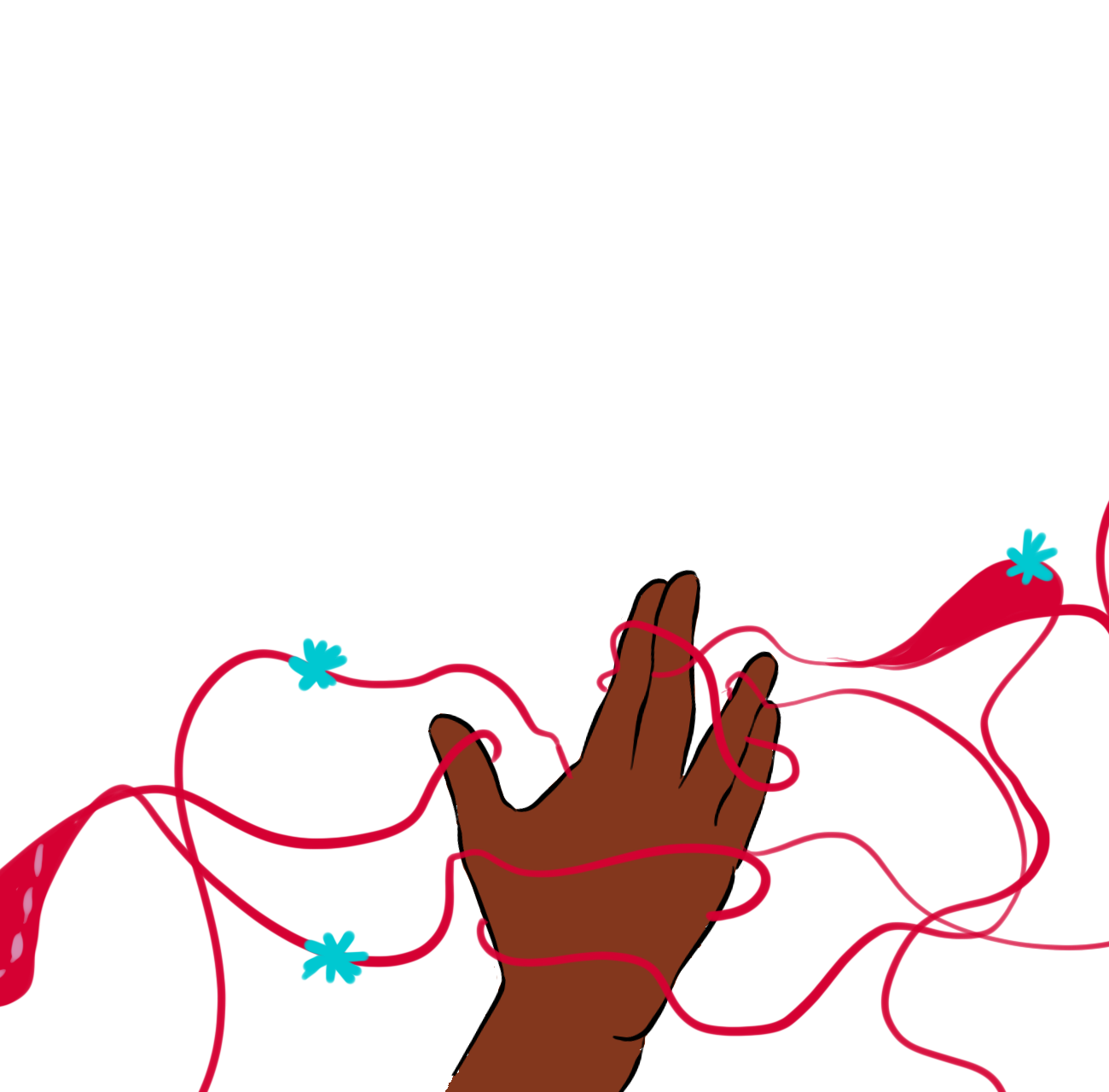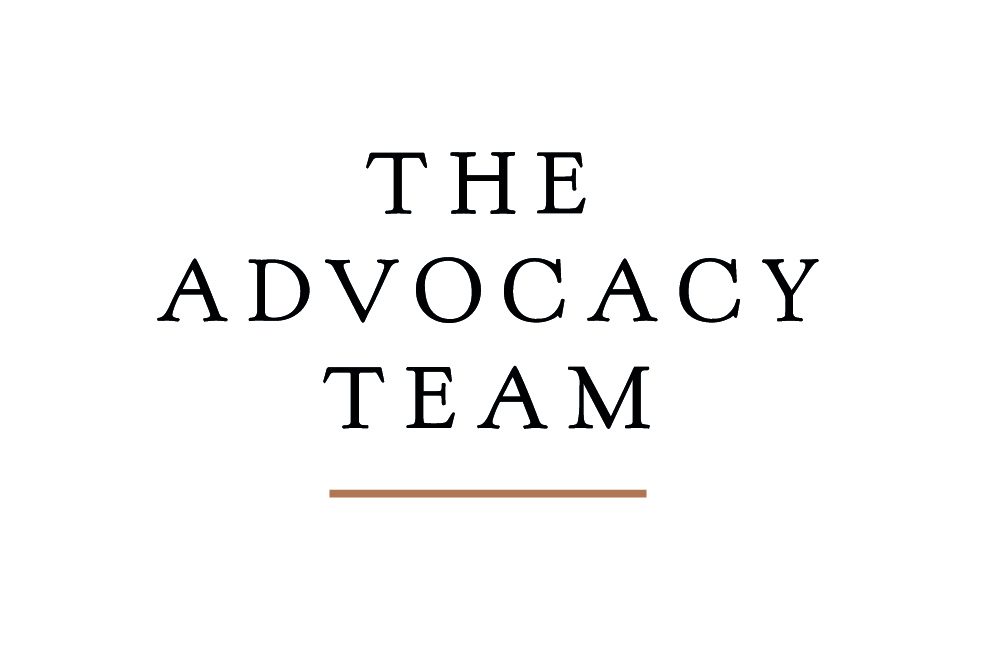This is the Work
Applying anti-racist and decolonial approaches to policy and advocacy
Defining the key terms
A new framework for implementing anti-racist and decolonial
approaches to policy and advocacy work
Contents
1. Background and purpose
Problem statement
The international development sector has seen a rise in conversations on anti-racism, racial justice, decolonising aid and locally-led development in the last few years. However, people working in international development policy and advocacy are often separate from these conversations. While there have been some degree of discussion internally, this project is an opportunity for policy and advocacy staff to reflect on their own identities and how they can put changes into practice. This engagement with policy and advocacy staff is part of a wider programme where staff working in different parts of the development sector, from leadership to communications and beyond, are encouraged and supported to apply these approaches in their own day-to-day work.
In general, charity policy and advocacy is a very privileged, white space with many internalised biases on show. At the same time, it is often the main interface (besides CEOs) with UK government decision-makers and parliamentarians. The beliefs and attitudes of this part of the sector can be disproportionately influential, at times creating an unnecessary barrier between decision-makers and communities with lived experience and communities in low- and middle-income countries.
With support from the Advocacy Team, Bond and Peace Direct aim to build on their work and the work of others (e.g. Charity So White and the Gender and Development Network) to address racism in the international development and peacebuilding sectors and decolonise the system. This work has engaged UK policy and advocacy professionals in these sectors, as well as current/former decision-makers, to openly reflect on the challenges, opportunities and their own identities and roles in driving forward change.
Framing for this document
Through wide consultation with policy and advocacy staff across the international development and peacebuilding sectors, we found broad consensus that staff would like to see the development of resources to support their efforts to change their ways of working. This should begin with a clear set of definitions to ensure that there is shared understanding of the key terms used throughout the process.
Who is this project for?
This is the Work was designed with and for policy and advocacy staff working in INGOs which includes policy staff, public affairs staff, campaigners, researchers, communicators and leaders. It is intended to apply to people working in every position, from leadership to entry level. Over 80 policy and advocacy staff joined an initial workshop where we set the agenda for this work, and we are especially grateful to the 18 members of the working group who provided invaluable guidance, feedback and suggestions. We recognise that there are many blurred lines between different roles in international development. Accordingly, the principles and ideas outlined in this document may also be useful for staff with job titles including ‘public affairs’, ‘campaigns’ and ‘research’.
Process
This resources outlines suggested definitions of the key terms. We began by reviewing the definitions used in existing resources developed by Bond, Peace Direct, the Gender and Development Network, Kampala Initiative and the Equity Index. In the following definitions, we identify the key components of each term, draw on existing material explaining how these terms apply to the international development and peacebuilding sectors, then suggest specific definitions that apply in the context of policy and advocacy work.
Note on definitions
There is no single agreed definition for any of the terms we use throughout the project (e.g. anti-racism, decolonisation, equity, intersectionality). Each of these terms are contested and open to interpretation and reinterpretation, with different organisations and activists offering a range of definitions. For the purposes of this initiative, we have drawn on the work of many organisations advocating for change in the development sector and we have focused our definitions on the following:
- Ensuring direct relevance to the international development and peacebuilding sectors.
- Framing these definitions to ensure that, as far as possible, they are relevant to the work of advocates.
- Wherever possible, we have focused these definitions on practical implementation, mindful of the clear gap between the near widespread acceptance of the language of anti-racism and more limited progress in terms of changing behaviour.
2. Anti-racism: core components
Skip to
Definition of racism
Racism is different from racial prejudice, hatred, or discrimination. Racism involves one group having the power to carry out systematic discrimination through the institutional policies and practices of the society in question, and by shaping the cultural beliefs and values that support those racist policies and practices.
Source: What Is Racism? − Dismantling Racism Works (dRworks) via Bond, 2021.
Core components
- Recognition of the history of racism, the designation of socially constructed racial categories and hierarchies, and how these processes are deeply intertwined with the history of slavery, colonialism, military occupation, and ongoing exploitation by many countries that are now categorised as ‘aid donors’ of many countries now defined as ‘aid recipients’.
- Recognition of the systemic ways in which racism is baked into national contexts and into international systems.
- Recognition that racism also operates inside organisations, with resulting individual and collective impacts.
Useful definitions of anti-racism

Broad definition
“Anti Racism is a powerful collection of anti racist policies that lead to racial equity and are substantiated by anti racist ideas.” – Ibrahim Kendi, How to be an Antiracist

Within the development context
“Anti-Racism is defined as the work of actively opposing racism by advocating for changes in political, economic, and social life.” Race Forward, 2015
“Anti-racism strives to transform the conditions that enable racism in all its forms. Such approaches must be at the core of any Northern organisation or actor that seeks to work with Southern groups.” Gender and Development Network, 2022
Proposed definition of anti-racism for international development policy and advocacy
Requires active scrutiny and analysis of data, policies, political statements, speeches, ideas and proposals for evidence of the various manifestation of racism, whether in knowledge production, institutions, events, formal and informal social and professional convenings, the fabric of the international system or the voices of decision-makers. This scrutiny of the various manifestations of racism is then accompanied by a commitment to, and evidence of, advocacy for anti-racist principles, policies, practices and ideas. Advocates take a planned, deliberate and strategic, rather than an ad hoc, approach to challenging racism. This work is the collective responsibility of all advocates working for organisations that claim to support these principles.
Decolonisation – core components
- Recognition of the political processes that underpins the term, decolonisation:
- Decolonisation: the action or process of a state withdrawing from a former colony, leaving it independent (Peace Direct, 2021)
- Recognition that decolonisation goes beyond the formal political process and encapsulates the enduring legacies of colonial eras and the many other ways in which colonial policies, principles and power are applied.
- The application of neo-colonial power includes measures used by donor governments and international institutions to influence or control countries that were previously colonised.
For example:

“The essence of neo-colonialism is that the State which is subject to it is, in theory, independent and has all the outward trappings of international sovereignty. In reality its economic system and thus its political policy is directed from outside…Control over government policy in the neo-colonial State may be secured by payments towards the cost of running the State, by the provision of civil servants in positions where they can dictate policy, and by monetary control over foreign exchange through the imposition of a banking system controlled by the imperial power.”
Kwame Nkrumah, Neo-Colonialism, the Last Stage of Imperialism, 1965
Useful definitions of decolonisation
Processes of decolonisation understand that colonisation is more than just a physical project – it has cultural and psychological components which determine whose knowledge is privileged. Decolonisation involves seeking restorative justice through cultural, psychological and economic freedom. Decolonisation is the process of deconstructing colonial ideologies regarding the superiority and privilege of Western thought and approaches.
Racism, power and truth: experience of people of colour in development, Bond
A decolonial approach seeks to recognise, make visible and address the ongoing legacies of colonialism across all facets of an organisation’s work.
Gender and Development Network
Decolonising international development, humanitarian intervention, and peacebuilding: refers to deconstructing and dismantling colonial-era and neo-colonial ideologies regarding the superiority of Global North thought and approaches. It also refers to the redistribution of power acquired by Global North actors during colonialism, and which has accumulated since.
Transforming Partnerships in International Cooperation, Peace Direct
Proposed definition of decolonisation for international development policy and advocacy

A decolonial approach to policy and advocacy work integrates the historic and enduring legacies of colonialism into policy and economic analysis, rejecting ahistoric and apolitical explanations of the causes of global poverty and inequality. It is active advocacy to challenge contemporary manifestations of colonial power and political systems where external governments use legal, economic and military powers to harm and subjugate civilian populations, denying calls for political sovereignty and independence; for example, through the ongoing military invasions in Ukraine and Gaza.
Advocacy focused at the international financial system engages with the many ways in which these institutions had, and continue to use, legal and economic measures to serve the interests of many former colonial powers at the expense of many formerly colonised countries. Examples include the unequal distribution of power and decision making in the governance systems of the World Bank, the IMF and other multilateral development banks, or France’s ongoing economic influence of the monetary policy of countries that use CFA francs in West and Central Africa.
It recognises the need for redress to reverse the harms caused by these actions and advocates for reparatory justice. It is reflective, requiring each individual and organisation to examine how their behaviour and practices might reinforce colonial power dynamics and take active steps to dismantle these practices.
Equity – core components
- Concerned with fair treatment, access, opportunity and advancement for all. It is equally concerned with the starting points, process, results and outcomes, questioning whether and how these are influenced by marginalisation and discrimination. It centres lived experience, and the voices of people most affected by each issue.
- Intersectional – equity looks beyond racism to examine how other intersecting characteristics and identities, such as gender, ability, wealth, nationality and sexual orientation, can influence every aspect of people’s lives, including their personal power and their ability to access services, hold or influence political power and make decisions. The various forms of inequality often operate together and exacerbate each other.
- Requires an examination of the root causes of the issues that create or reinforce inequities. For example, in the context of health, factors such as unfair trade agreements, exploitation, extraction of national resources, under-resourced health systems and political-economic incentives reinforce what the Kampala Initiative describes as “disease producing forces“.
Equality vs Equity
The terms ‘equality’ and ‘equity’ are often used interchangeably, although they embody quite distinct points of view. Equality implies that no differences should exist between people. Everyone should earn or receive the same. Equity, on the other hand, accepts differences but rejects disparities that are unfair and avoidable. Differences must be based on a level playing field and on principles of social justice; they have to be earned fairly.
p.18 2013 United Nations paper
Useful definitions of equity
There are various definitions and connotations associated with the term ‘equity’, depending on who uses the term, which angle it is viewed from and the context in which it is used. Given the many different uses of the term that are in operation within or beyond the development sector, it is important to note that these suggested definitions specifically relate to the context of global development.
The guarantee of fair treatment, access, opportunity and advancement for all, while striving to identify and eliminate barriers that have prevented the full participation of some groups. The principle of equity acknowledges that, historically, there are underserved and underrepresented populations and that fairness regarding these unbalanced conditions is needed to assist equality in the provision of effective opportunities to all groups.
Bond
The Equity Index uses the term to refer to a general process of ‘levelling an unequal playing field’ between the Global South and Global North, through organisational policies and practices that do not discriminate against marginalised groups, a fairer distribution of resources, and more equitable partnerships.
Equity Index
Equity means fairness and justice and focuses on outcomes that are most appropriate for a given group, recognising different challenges, needs, and histories. It is distinct from diversity, which can simply mean variety (the presence of individuals with various identities). It is also not equality, or ‘same treatment’, which doesn’t take differing needs or disparate outcomes into account. Systemic equity involves a robust system and dynamic process consciously designed to create, support and sustain social justice.
Race Forward
Proposed definition of equity for international development policy and advocacy
An equitable approach to policy and advocacy requires actors in this space to actively work towards just and fair outcomes for all groups, while recognising and acknowledging that people will have differing needs, challenges and contexts. An equity lens can be integrated throughout every aspect of policy and advocacy work. It requires analysts and advocates to ask searching questions about how inequities show up in each context, from knowledge production to participation at decision-making tables. An equity lens also centres the voices of people with lived experience of each issue under discussion, and thinks critically and sensitively about each person’s own positionality and how they can work together. Policy and advocacy staff use their specific skills to scrutinise organisational practices and policies to ensure they do not discriminate against marginalised groups, and work to create conditions which enable and support social justice.
3. The Framework
Notes on the framework
Policy and advocacy staff identified a need for a framework that teams could use to apply the anti-racist, decolonial and equity principles defined earlier at a practical level in their daily activities. The framework below was developed by The Advocacy Team to address this need. In reviewing the framework, please consider the following:
- This framework is intended to support implementation of the key terms discussed in the slide deck on definitions.
- It is intended as a tool to support planning, discussion, implementation and reflection by policy and advocacy teams working in the international development and peacebuilding sectors.
- Policy and advocacy teams are encouraged to keep written records of the discussions that flow from the questions outlined in the framework in order to document how they are using the framework, the progress they are making and what they find challenging.
- Teams are also encouraged to make use of external resources (a reading list is provided with this deck) to develop bespoke indicators to define their goals and progress across the agenda.
Framework for incorporating anti-racism, decoloniality and equity into policy and advocacy
This framework can be used to inform planning and reflection on how, in practice, these principles are being integrated into policy and advocacy work. It is based on four key areas:
Evidence, data and analysis
Questions to consider
- How are teams adapting their approach to data and evidence to reflect equity, anti-racist or decolonial principles?
- Are teams systematically reviewing data for evidence of disparities, asking questions about which perspectives, sources and ideas are included/excluded?
- What mechanisms are in place to ensure that analysis takes into account data sources, authors and institutions outside of high-income countries?
- To what extent are knowledge sources outside of the traditional western paradigms included in analytical pieces?
- To what extent do analytical pieces and policy positions take account of historic or contemporary injustices or systemic political issues?
- What mechanisms are in place to review who ‘holds the pen’ on sign off and what perspective that brings?
Suggested approach and implementation
- Conduct individual and/or team reviews of a sample of your organisation’s existing policy products, using the questions in this framework.
- Have a collective discussion about the findings of this review. Document the findings to represent a baseline of the approach. Agree the key areas to prioritise.
- Agree a sample of qualitative and quantitative indicators to measure and track progress. For example, a quantitative measure could include the proportion of sources cited from Low- and Middle-Income Countries as evidence in policy products. A qualitative measure could ask about the extent to which an anti-racist framework is incorporated (in narrative and practice) in the team’s key public documents.
- Agree timelines for reviews.
- Hold meetings to review progress against the baseline.
- Learn from this process to refine or adapt metrics and agree new goals.
- Think about inclusive ways to sign off work which can bring rounded perspectives.
Strategic planning
Questions to consider
- How are teams integrating anti-racist and de-colonial principles in policy and advocacy planning?
- How are these policies, principles or ideas captured in advocacy strategies?
- How can these principles be better integrated?
- How are perspectives from Low- and Middle-Income Countries, diaspora or other people with relevant lived-experience integrated into the team’s policy and advocacy planning process?
- Where perspectives are integrated into strategic planning from Low- and Middle-Income Countries, diaspora or other people with relevant lived-experience, what is the balance of perspectives across these groups, and is this practice consistently applied?
Suggestions for how to implement
Review the team’s existing approach to planning.
- To explore some of these questions, use a team meeting to dedicate time to consider the team’s approach to annual policy and/or advocacy processes and the team’s approach to planning for individual advocacy projects. What does the annual planning process indicate about who sets the agenda and how the team selects the key issues to work on? How ambitious is the planning process with respect to applying a decolonial lens? If external perspectives are included, how is the team mitigating against an extractive approach? Use a recent policy or advocacy project as a benchmark for how the team currently works to answer the questions on the left hand side of the grid.
- Use data to document the nature of how the team interacts and engages with partners in Low- and Middle-Income Countries. Where there is a pattern of poor practice, consider raising this issue, especially with team and project leaders.
Dedicate a specific team meeting to discuss how to reform strategic planning processes.
Following this review of the team’s strategic planning processes, make specific time in the agenda of a team meeting or create a session to explore how the team’s existing approach aligns with anti-racist and decolonial principles and ideas.
Develop a shared set of goals for how to reform strategic planning processes to align with decolonial ways of working. Agree and document the key principles for how the team will approach partnerships. For example, many organisations no longer have ‘manels’ (all-male panels of speakers), and this paves the way for being intentional about ensuring representation is interrogated into all work areas. Consider future planning, and where possible create more room in project timelines to allow for engaging with diaspora and voices from Low- and Middle-Income Countries. Where advocacy campaigns are created internally, this may be easier to plan ahead for future campaigns.
Evidence of application
Questions to consider
- How are teams adapting their approach to data and evidence to reflect equity, anti-racist or decolonial principles?
- How are teams putting anti-racist and decolonial principles and ideas into practice in policy and advocacy work?
- How are teams raising these issues in engagement with policy targets and peer NGOs? What recommendations are they making and how are they adapting their approach to support a focus on these issues?
- What are the teams’ weakest areas in practically integrating equity, anti-racist and decoloniality in day-to-day policy and advocacy work? Are there any resources, colleagues or external organisations that could support improvement?
- How are partners and peers in low- and middle-income countries, diaspora and those with lived experience being included in ongoing policy and advocacy efforts, for example through engagement with decision-makers?
Suggestions for how to implement
- Both individually and as a team, map the key advocacy activities for the upcoming month (e.g. planned events, advocacy meetings, coordination meetings, trips) and reflect on if or how these activities have sought to apply anti-racist or decolonial principles.
- Keep a record of these reflections. Use them to guide future discussions and to examine what, if anything, is changing.
- Have an honest reflection both individually and in small teams about what the team finds difficult in applying this framework. What, if anything, is holding the team back?
- Consider for any upcoming opportunities whether another colleague, peer or partner would be better placed to speak to these priorities?
- Agree in advance how you will ensure this agenda is not put on the back burner when something assessed as being more urgent emerges.
- Make a plan for the changes the team has agreed to implement and the timeline for these changes.
- Seek training and additional support, if required.
Learning and impact
Questions to consider
- What tools and systems are teams using to assess how they are incorporating an anti-racist and decolonial approach?
- What metrics is the team using to assess how practices are changing?
- How does your monitoring and evaluation culture for policy and advocacy take account of equity, anti-racist and decolonial principles?
Resources to support measurement, learning and impact
- Consider adapting the indicators found in the The Equity Index, indicator assessment framework.
- For gender-focused indicators, explore the strategic framework document of the Fairshare Monitor.
- Joseph Rowntree Foundation’s Reframing Racism report.
- Hannah Ryder, Development Reimagined, A blueprint for black lives matter in the development sector.
- Implement the recommendation in Bond’s Racism, power and truth report.
- Relevant recommendations in Peace Direct’s Transforming Partnerships report.







